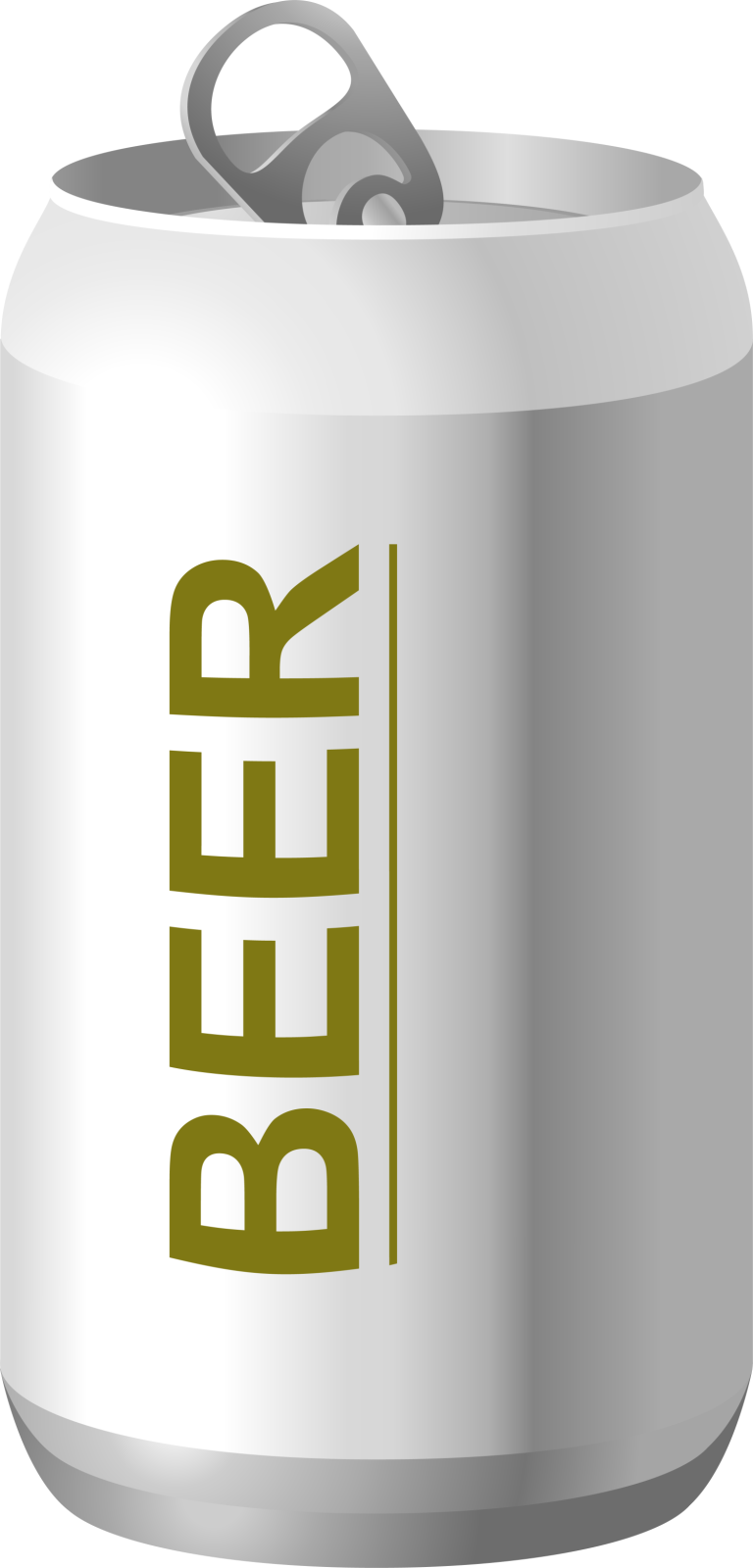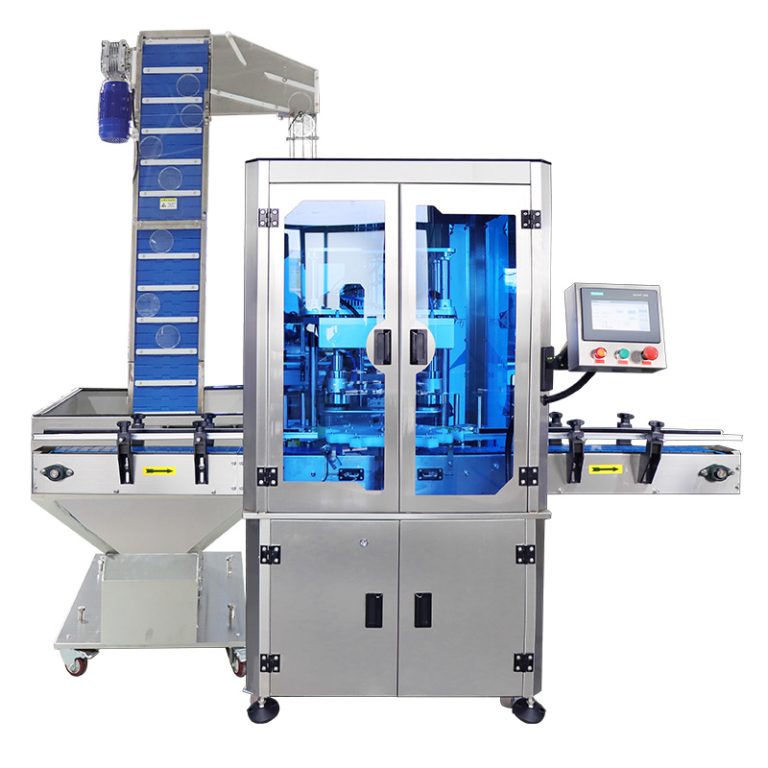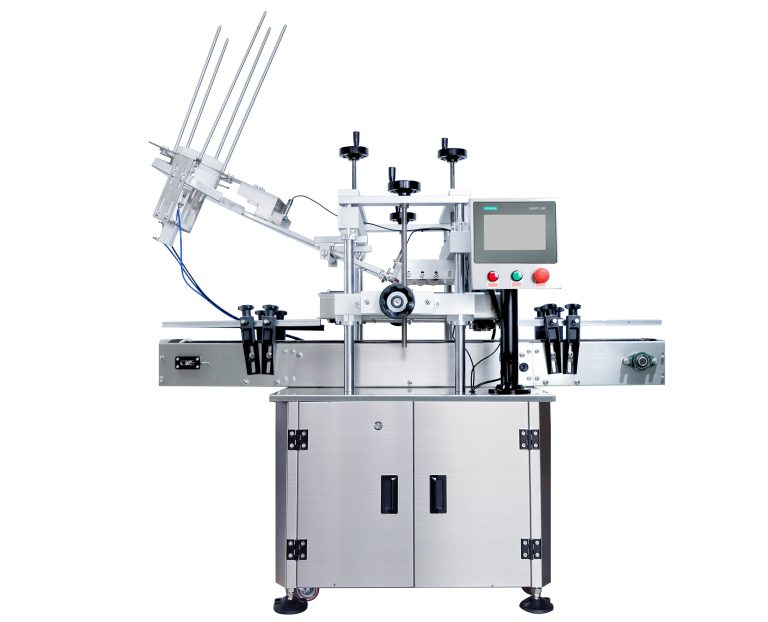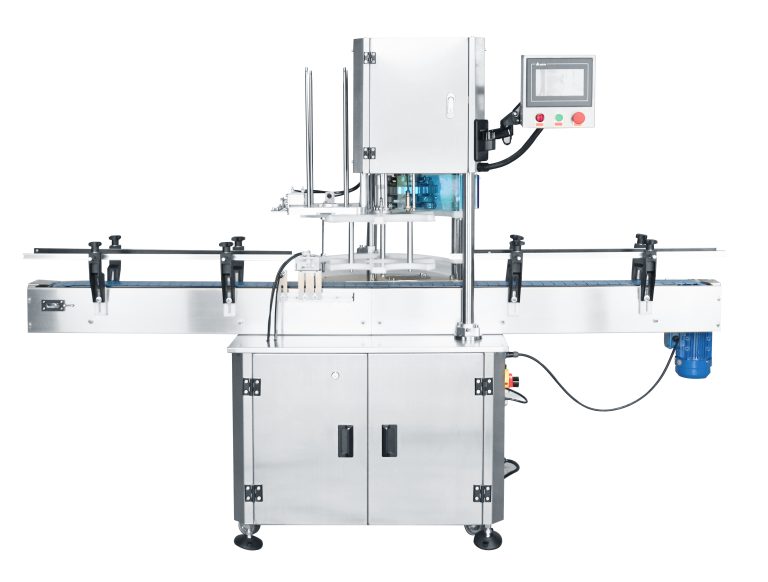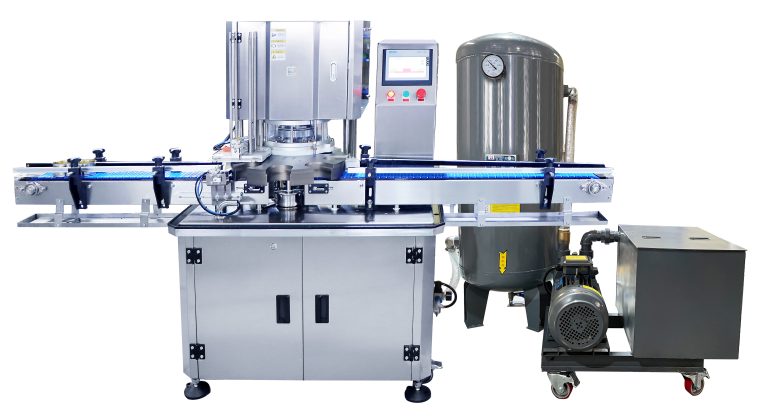Table of Contents
Benefits of Using a Fully Automatic Multifunctional Four-Wheel Capping Machine
In today’s fast-paced manufacturing industry, efficiency and productivity are key factors in staying competitive. One way to streamline the production process and increase output is by investing in a fully automatic multifunctional four-wheel capping machine. This advanced piece of equipment offers a wide range of benefits that can help businesses improve their operations and achieve their production goals.
One of the main advantages of using a fully automatic multifunctional four-wheel capping machine is its ability to cap a variety of bottle sizes and shapes with precision and consistency. This machine is equipped with four wheels that can adjust to different bottle diameters, ensuring that each cap is applied securely and evenly. This versatility eliminates the need for manual adjustments and reduces the risk of human error, resulting in a more efficient and reliable capping process.
Furthermore, a fully automatic multifunctional four-wheel capping machine is designed to handle high-speed production lines, allowing businesses to increase their output without compromising on quality. With its automated operation and fast capping speed, this machine can cap hundreds of bottles per minute, significantly reducing production time and labor costs. This increased efficiency not only boosts productivity but also improves overall profitability for businesses.
Another benefit of using a fully automatic multifunctional four-wheel capping machine is its user-friendly interface and easy setup. This machine is equipped with intuitive controls and programmable settings that make it simple to operate and adjust according to specific production requirements. Additionally, its compact design and modular construction allow for easy installation and integration into existing production lines, minimizing downtime and maximizing uptime.
In addition to its efficiency and ease of use, a fully automatic multifunctional four-wheel capping machine offers enhanced product quality and consistency. By applying caps with precision and uniformity, this machine helps businesses maintain a professional and polished appearance for their products. This consistency not only enhances brand image but also ensures customer satisfaction and loyalty.
Furthermore, a fully automatic multifunctional four-wheel capping machine is equipped with advanced safety features and quality control mechanisms to prevent accidents and ensure product integrity. From automatic bottle rejection systems to sensor-based cap detection, this machine is designed to prioritize safety and quality assurance throughout the capping process. This attention to detail not only protects employees and equipment but also upholds product standards and regulatory compliance.
Overall, the benefits of using a fully automatic multifunctional four-wheel capping machine are clear. From increased efficiency and productivity to improved product quality and safety, this advanced piece of equipment offers a comprehensive solution for businesses looking to optimize their capping process. By investing in this technology, companies can streamline their operations, reduce costs, and ultimately achieve their production goals with ease.
How to Choose the Right Fully Automatic Multifunctional Four-Wheel Capping Machine for Your Business
Fully automatic multifunctional four-wheel capping machines are essential equipment for businesses in various industries, including food and beverage, pharmaceuticals, cosmetics, and more. These machines are designed to efficiently cap bottles, jars, and containers of different shapes and sizes, making them an indispensable tool for packaging operations. However, with so many options available in the market, choosing the right capping machine for your business can be a daunting task. In this article, we will discuss some key factors to consider when selecting a fully automatic multifunctional four-wheel capping machine to meet your specific needs.
First and foremost, it is essential to consider the production capacity of the capping machine. The production capacity of a capping machine is determined by the number of bottles or containers it can cap per minute. Depending on the size of your production line and the volume of products you need to cap, you will need to choose a capping machine with an appropriate production capacity to ensure smooth and efficient operation.
Another important factor to consider is the type of caps and containers that the capping machine can handle. Fully automatic multifunctional four-wheel capping machines are designed to cap a wide range of caps, including screw caps, press-on caps, snap caps, and more. It is crucial to ensure that the capping machine you choose is compatible with the caps and containers used in your production line to avoid any compatibility issues and ensure a seamless capping process.
Additionally, consider the level of automation and customization options offered by the capping machine. Fully automatic multifunctional four-wheel capping machines come with various automation features, such as automatic cap feeding, cap sorting, and cap tightening, to streamline the capping process and improve efficiency. Some capping machines also offer customization options, allowing you to adjust the capping speed, torque, and other parameters to meet your specific requirements.
Furthermore, it is essential to consider the footprint and layout of the capping machine. Fully automatic multifunctional four-wheel capping machines come in different sizes and configurations, so it is crucial to choose a machine that fits seamlessly into your production line layout and space constraints. Consider the available space in your facility and the layout of your production line to determine the best capping machine configuration for your business.
In addition to these factors, it is also important to consider the reputation and reliability of the capping machine manufacturer. Look for a reputable manufacturer with a proven track record of delivering high-quality capping machines that meet industry standards and customer expectations. Read customer reviews, testimonials, and case studies to gauge the manufacturer’s reputation and reliability before making a purchase decision.
In conclusion, choosing the right fully automatic multifunctional four-wheel capping machine for your business requires careful consideration of various factors, including production capacity, compatibility with caps and containers, automation features, customization options, footprint, layout, and manufacturer reputation. By taking these factors into account and conducting thorough research, you can select a capping machine that meets your specific needs and helps streamline your packaging operations for increased efficiency and productivity.
Maintenance Tips for Fully Automatic Multifunctional Four-Wheel Capping Machines
Maintenance Tips for Fully Automatic Multifunctional Four-Wheel Capping Machines
Fully automatic multifunctional four-wheel capping machines are essential equipment in various industries, including food and beverage, pharmaceuticals, and cosmetics. These machines are designed to cap bottles, jars, and containers with precision and efficiency. To ensure the smooth operation of your capping machine and prolong its lifespan, regular maintenance is crucial. In this article, we will discuss some maintenance tips for fully automatic multifunctional four-wheel capping machines.
First and foremost, it is essential to follow the manufacturer’s guidelines for maintenance. The manufacturer’s manual will provide detailed instructions on how to properly maintain your capping machine. Make sure to read and understand the manual thoroughly before performing any maintenance tasks. This will help you avoid any potential damage to the machine and ensure its optimal performance.
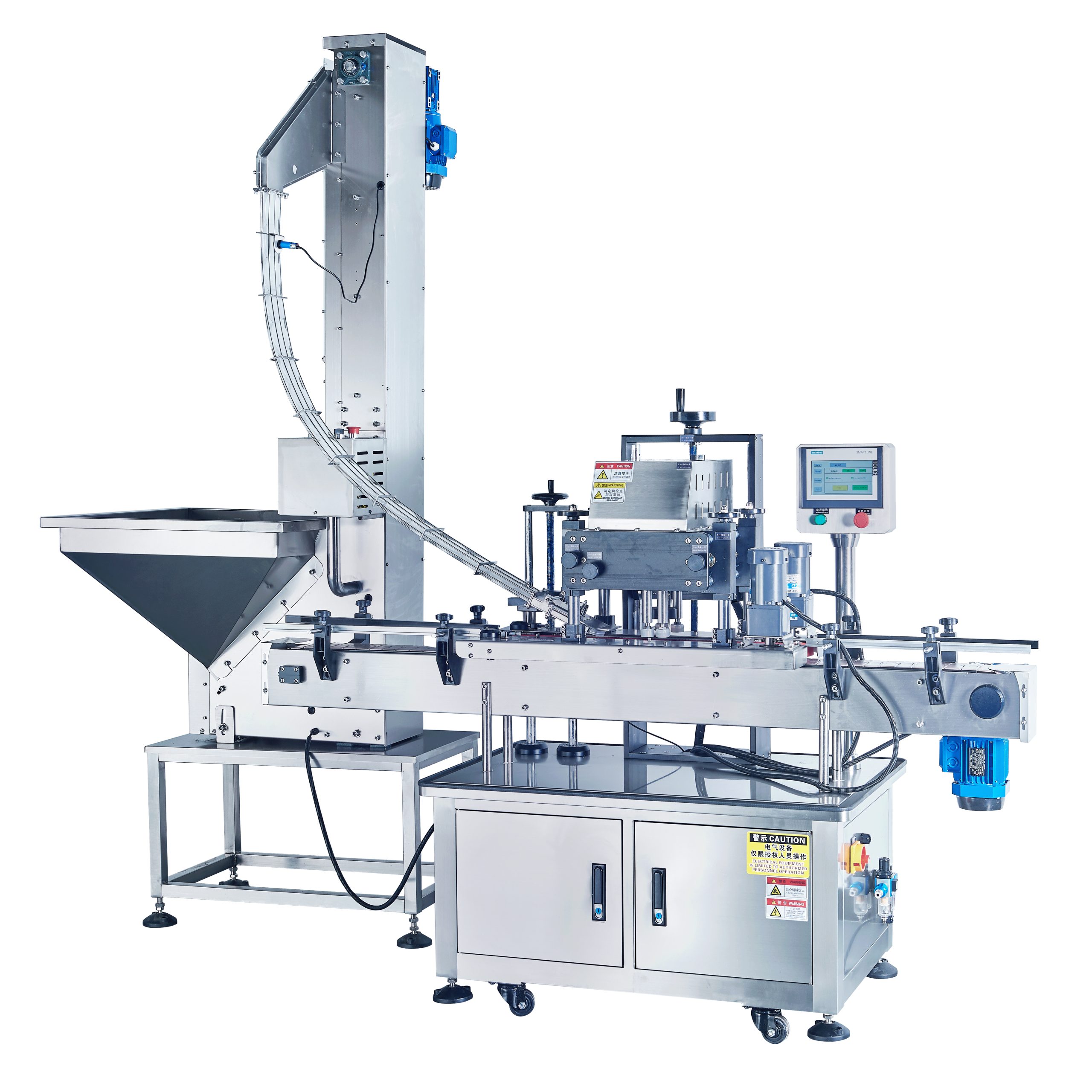
One of the most important maintenance tasks for a capping machine is cleaning. Regular cleaning of the machine will prevent the buildup of dust, debris, and other contaminants that can affect its performance. Use a soft cloth and a mild detergent to clean the exterior of the machine. For the interior components, such as the capping heads and conveyor belts, use a brush or compressed air to remove any dirt or debris.
In addition to cleaning, lubrication is another crucial maintenance task for fully automatic capping machines. Proper lubrication of moving parts will reduce friction and wear, ensuring smooth operation. Use a high-quality lubricant recommended by the manufacturer and apply it to the designated lubrication points regularly. Be sure to follow the manufacturer’s guidelines on the type and frequency of lubrication to avoid over-lubrication, which can cause damage to the machine.
Inspecting the machine for any signs of wear and tear is also important. Check the capping heads, conveyor belts, and other components for any damage or misalignment. Replace any worn or damaged parts immediately to prevent further damage to the machine. Regular inspection will help you identify potential issues early on and address them before they escalate into more significant problems.
Calibrating the machine is another essential maintenance task for fully automatic capping machines. Calibration ensures that the machine is operating at its optimal performance level and can cap bottles accurately. Follow the manufacturer’s guidelines on how to calibrate the machine and perform this task regularly to maintain its efficiency.
Lastly, it is crucial to train your staff on proper machine operation and maintenance. Make sure that your operators are familiar with the capping machine’s functions and know how to perform basic maintenance tasks. Provide training sessions on machine operation, cleaning, lubrication, and troubleshooting to ensure that your staff can effectively maintain the machine and prevent any potential issues.
In conclusion, regular maintenance is essential for fully automatic multifunctional four-wheel capping machines to ensure their optimal performance and longevity. By following the manufacturer’s guidelines, cleaning, lubricating, inspecting, calibrating, and training your staff, you can keep your capping machine in top condition and avoid costly repairs. Remember that proper maintenance is key to maximizing the efficiency and productivity of your capping machine.

